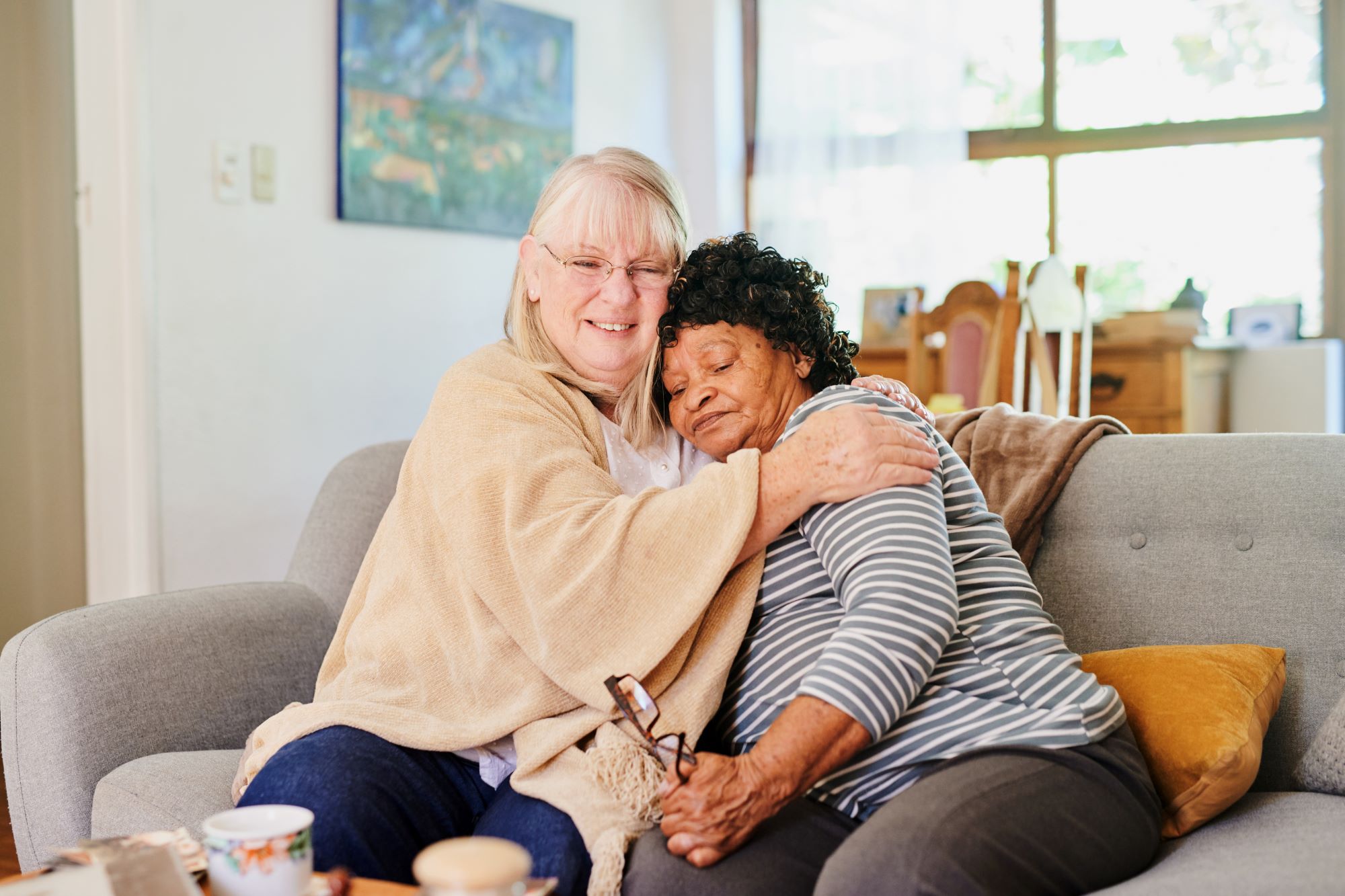Support and Advice for Carers

Published on 09 June 2025 10:44 AM
If you look after a partner, relative or friend who’s disabled or ill due to their physical or mental health, you're a carer – even if you don’t think of yourself as one.
Being a carer can be demanding. As a local independent charity, Age UK East Sussex provides carers with practical support and confidential advice on a range of subjects – from financial benefits and home adaptations to respite breaks.
Our team of friendly advisors are just a call or an email away. You can contact the free Age UK East Sussex information service on 01273 476704 between 10am and 3.45pm Monday to Friday or email information@ageukeastsussex.org.uk
> Access our series of guides and factsheets here.
Caring for a friend or relative can be hugely rewarding – but it can also be challenging. We're here to help you understand what support is available for you and the person you care for.
Carer’s checklist
- Request a carer's assessment from your local council
- Register as a carer with your GP
- Apply for Carer's Allowance
- Check whether you're entitled to other financial support
- Tell your employer about your caring responsibilities
- Think about asking for flexible working
- Consider if home adaptations would be helpful
- Make time for yourself and your interests as often as you can
Accessing financial support
As a carer, it's important to check whether you might be entitled to financial support – especially if your income is lower because you've given up work or reduced your hours.
Carer's Allowance: this is the main welfare benefit to help carers. To be eligible for Carer's Allowance, you must:
- Spend at least 35 hours per week caring for someone, whether or not you live with them
- Care for someone who receives certain benefits
- Not be in full-time education or earn more than the specified weekly threshold.
You can find out more about Carer’s Allowance here
Carer's Credit: if you are of working age and care for someone for at least 20 hours per week, you could get Carer's Credit, which helps to maintain your National Insurance record. If you get Carer’s Allowance, you'll get Carer's Credit automatically. However, you don’t have to be receiving Carer’s Allowance to get Carer's Credit. Find out more on GOV.UK
Local council support: You’re entitled to a free carer’s assessment from the local council to work out what support you need. After the assessment, the council decides whether or not you’re eligible for help. This could include help with caring, respite care, counselling or equipment to make things easier at home. If the council charges for carer support services, they must carry out a financial assessment to see if you’re entitled to receive help with the costs. You can find out more about the carer's assessment here.
Coping with dementia
Looking after a friend or relative who has dementia can be very challenging. Caring for someone with dementia can lead to feelings of guilt, sadness, confusion or anger. Unlike other conditions, it can be difficult to share these feelings with someone with dementia, leaving you feeling very isolated.
Carers’ groups can be a good way to get support from other carers who understand what you’re going through and can share their own experiences. Most groups meet regularly and may include talks from speakers, leisure activities, trips and some time to just sit and chat..
Contact these organisations to find out about East Sussex carers' groups Alzheimer's Society, Dementia UK and Carers UK. You can also read more about the impact of dementia on people and their carers here.
Caroline Abrahams, Age UK Charity Director, talks about her experiences of looking after a relative.
Balancing work and care
If you’re balancing responsibilities at work with responsibilities as a carer, it can be a lot to handle at once. But knowing your rights and the possible options available to you could help.
Carers have the right to request flexible working arrangements, such as part-time hours, job sharing or working from home. Though an employer doesn't have to say yes, they need a sound business reason for saying no.
Carers also have the right to time off in an emergency when it involves someone who's dependent on you – for example, a partner, parent or child. If someone else relies on you for help, they may also count as a dependant. You can find out more about your rights as a working carer on the Carers UK website.
Employees are entitled to up to one week's unpaid leave per year to arrange or provide care for a dependant who needs long-term care. You can find out more on the Acas website.
Looking after yourself
Over time, caring can really take its toll. It’s vital that you take time to look after yourself - not just so you can carry on caring, but so you have the energy to keep doing the things you enjoy.
Don't feel like you need to do everything yourself. If you have relatives who live nearby, try to be honest with them if you need help or want to share the caring responsibility.
If you’re finding caring tiring or difficult, it might help to tell your GP you’re a carer and discuss the impact that this is having on your health. They'll be able to offer you advice and support.
Respite care
It's important to take a break from caring if you need one – it doesn’t mean you’re letting down the person you look after, and could help you care for them better, for longer.
Respite care provides care and support for the person you care for whilst giving you a much-needed break. There are lots of different types of respite care, including at-home care services to day centres and short-term residential care. You can find out more about respite care here.
